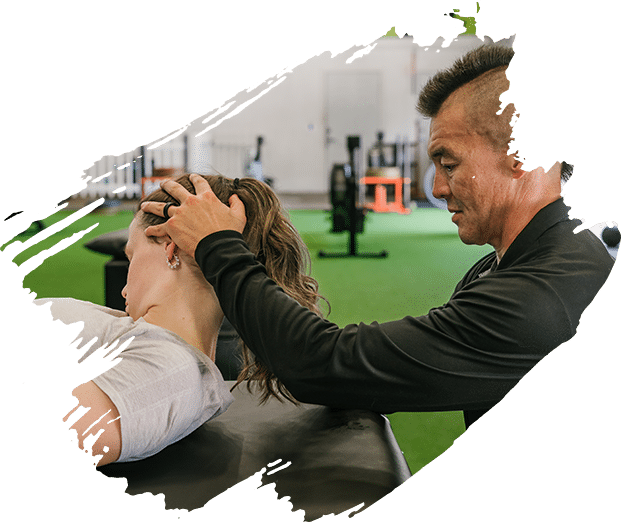The Importance Of Strength Training
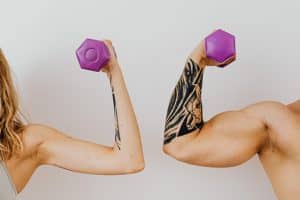 Running is a great exercise, but if that's all you're doing, it's not enough. You need four types of training to be fit. You need cardio, flexibility, balance, and strength training. All of them play a vital role in your health. People often overlook strength training because they think it causes big bulging muscles. The fact is you have to train specifically to do that. It's hard for men to do and almost impossible for women. It offers many benefits to people of all ages, including seniors.
Running is a great exercise, but if that's all you're doing, it's not enough. You need four types of training to be fit. You need cardio, flexibility, balance, and strength training. All of them play a vital role in your health. People often overlook strength training because they think it causes big bulging muscles. The fact is you have to train specifically to do that. It's hard for men to do and almost impossible for women. It offers many benefits to people of all ages, including seniors.
Obesity is a killer, and strength training can fight it.
Many people think of cardio as a calorie torcher, and they'd be right. However, the calories it burns come from both muscle and fat tissue. Burning muscle tissue can be counterproductive. Muscle tissue requires more calories to maintain, so the more you have, the more calories you burn 24/7. Strength-building also burns a lot of calories, but it builds muscle tissue at the same time, boosting your efforts to shed extra pounds.
Strength training can prevent osteoporosis and build bone density.
After the mid-30s, people start losing muscle mass. Sarcopenia is naturally occurring unless you do something to prevent it. That something is strength training. Why would you try to prevent it? The more muscle mass you lose, the more potential you have for bone loss. When the muscles tug on the bones, the body sends calcium to the bones to strengthen them. If that tugging doesn't occur, the bones lose calcium. Maintaining muscle mass as you age can keep you independent longer and help prevent injuries from falling.
Get rid of belly fat when you do strength training.
Belly fat---visceral fat---is the most dangerous type of fat. Unlike subcutaneous fat that's just below the top layer of skin, visceral fat is deep inside and it crowds the organs. It can cause inflammation, breathing, cause insulin resistance, and generally affect overall health. It's also the hardest type of fat to lose. Strength training can help eliminate visceral fat, which makes you healthier and improves your overall appearance.
- Whether you're premenopausal, menopausal, or postmenopausal, hormonal imbalances can affect your health and weight. Strength-building exercises can help realign your hormones.
- If back pain plagues you, start doing strength training. As you build your core muscles and get stronger, it relieves back pain. It strengthens the core muscles and improves overall posture.
- Strength training builds muscles and tendons that can ease joint pain. It helps lubricate the joints by increasing synovial fluid. The synovial fluid cushions the joints, lubricates, and brings nutrients to the joints.
- Strength training improves heart health, lowers the risk of type 2 diabetes, and reduces blood sugar levels. It improves mental health. Therapists use it as an adjunct therapy for depression and anxiety.
For more information, contact us today at Habitat Health & Fitness

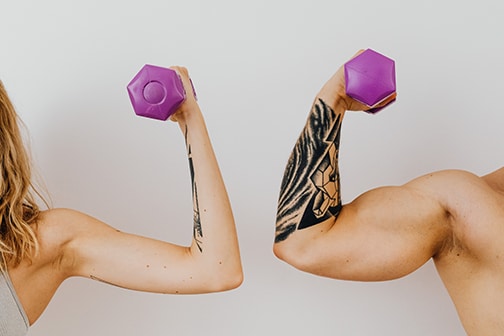

 People in Winter Haven, FL, often look for natural alternatives to harsh medications for arthritic pain relief. It's not that they don't believe in modern science, it's that they follow the less is more approach to pain relief for arthritis. If you can find a healthy alternative that reduces or eliminates the need for prescription or OTC drugs, why not use it? There are convincing studies that show diet and exercise can help and provide other benefits for the body.
People in Winter Haven, FL, often look for natural alternatives to harsh medications for arthritic pain relief. It's not that they don't believe in modern science, it's that they follow the less is more approach to pain relief for arthritis. If you can find a healthy alternative that reduces or eliminates the need for prescription or OTC drugs, why not use it? There are convincing studies that show diet and exercise can help and provide other benefits for the body.
 There's no better time to start a goal than the first of the year. It's a chance to renew and dedicate yourself to your goals and dreams. For some people, it's a financial goal and for others, it's to make it the healthiest year ever. How do you achieve any goal? First, you have to write it down in terms that are concise, measurable, and realistic. Having a timeline can prevent procrastination. Start by ensuring your goal is realistic.
There's no better time to start a goal than the first of the year. It's a chance to renew and dedicate yourself to your goals and dreams. For some people, it's a financial goal and for others, it's to make it the healthiest year ever. How do you achieve any goal? First, you have to write it down in terms that are concise, measurable, and realistic. Having a timeline can prevent procrastination. Start by ensuring your goal is realistic.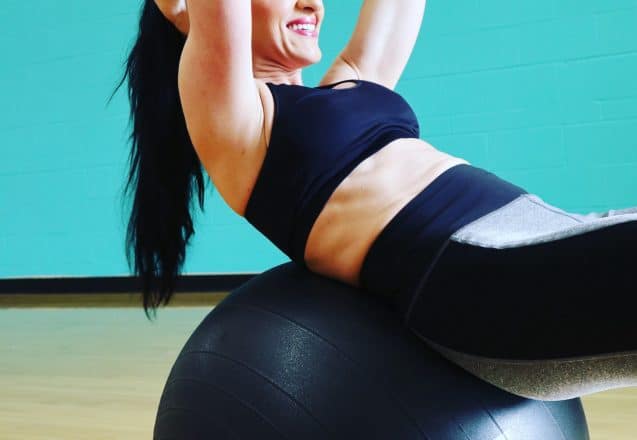
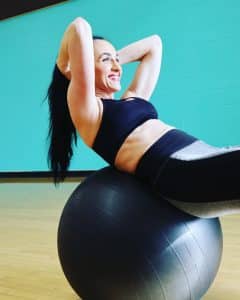 We focus on building strong core muscles at Habitat Health and Fitness in Lakeland, FL. We use ab workouts as one way of doing it. What are your core muscles and why are they important? They affect the health and fitness of your entire body. You maintain your balance by using your core muscles. Strong core muscles can also prevent back pain and improve posture. Improved posture leads to better digestion, fewer headaches, and the reduction of many other health issues. Core muscles include the pelvis, hips, lower back, and abs.
We focus on building strong core muscles at Habitat Health and Fitness in Lakeland, FL. We use ab workouts as one way of doing it. What are your core muscles and why are they important? They affect the health and fitness of your entire body. You maintain your balance by using your core muscles. Strong core muscles can also prevent back pain and improve posture. Improved posture leads to better digestion, fewer headaches, and the reduction of many other health issues. Core muscles include the pelvis, hips, lower back, and abs.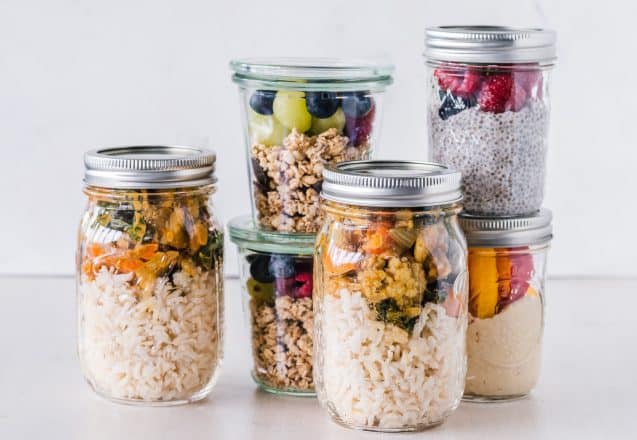
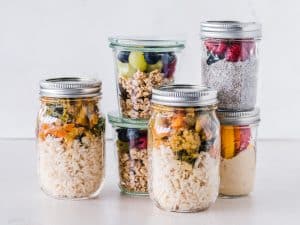 At Habitat Health and Fitness in Lakeland, FL, we focus on a healthy lifestyle, including a healthy diet. People often complain they don't have the time to make healthy meals. Here are some easy meals you can eat at any time. They only take minutes to make but can fill you up, are nutritious, and are beneficial for weight loss.
At Habitat Health and Fitness in Lakeland, FL, we focus on a healthy lifestyle, including a healthy diet. People often complain they don't have the time to make healthy meals. Here are some easy meals you can eat at any time. They only take minutes to make but can fill you up, are nutritious, and are beneficial for weight loss.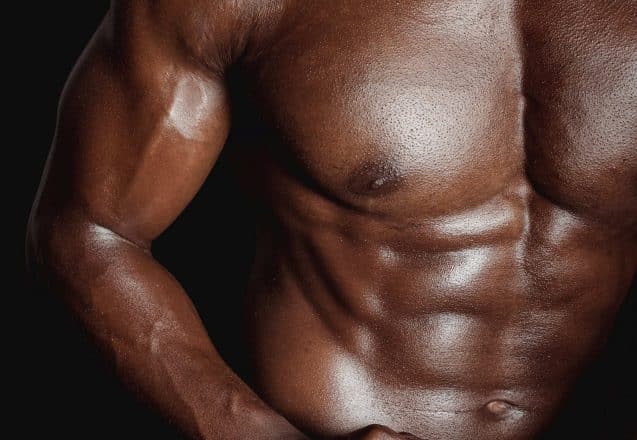
 Athletic men and women often look for more challenging exercises so they can be their fittest and perform their best. These exercises are often variations of the ones in most workouts. If you are tired of trying to max out the number of push-ups you can do and want to make push-ups harder. The journey toward the perfect Aztec push-ups will meet your needs.
Athletic men and women often look for more challenging exercises so they can be their fittest and perform their best. These exercises are often variations of the ones in most workouts. If you are tired of trying to max out the number of push-ups you can do and want to make push-ups harder. The journey toward the perfect Aztec push-ups will meet your needs.


 Knowing the signs of dehydration is vital in Lakeland, FL, in all seasons, especially during the cooler months when you're less likely to think you can get dehydrated. You might carry water everywhere, but if you're not sipping on it frequently, it does your body no good. Each person's symptoms will vary. Knowing all the symptoms helps you identify the problem and take action before it develops into a life-threatening issue.
Knowing the signs of dehydration is vital in Lakeland, FL, in all seasons, especially during the cooler months when you're less likely to think you can get dehydrated. You might carry water everywhere, but if you're not sipping on it frequently, it does your body no good. Each person's symptoms will vary. Knowing all the symptoms helps you identify the problem and take action before it develops into a life-threatening issue.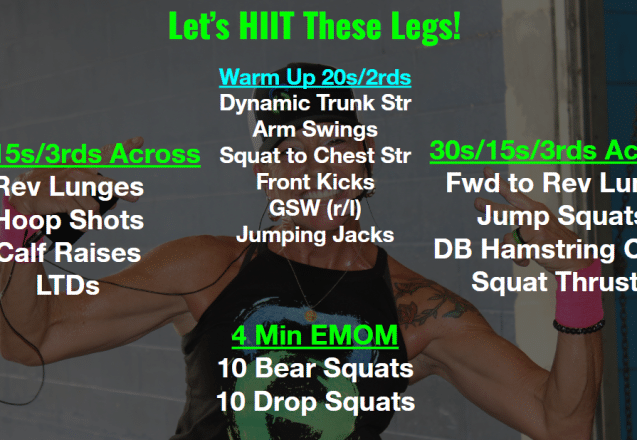
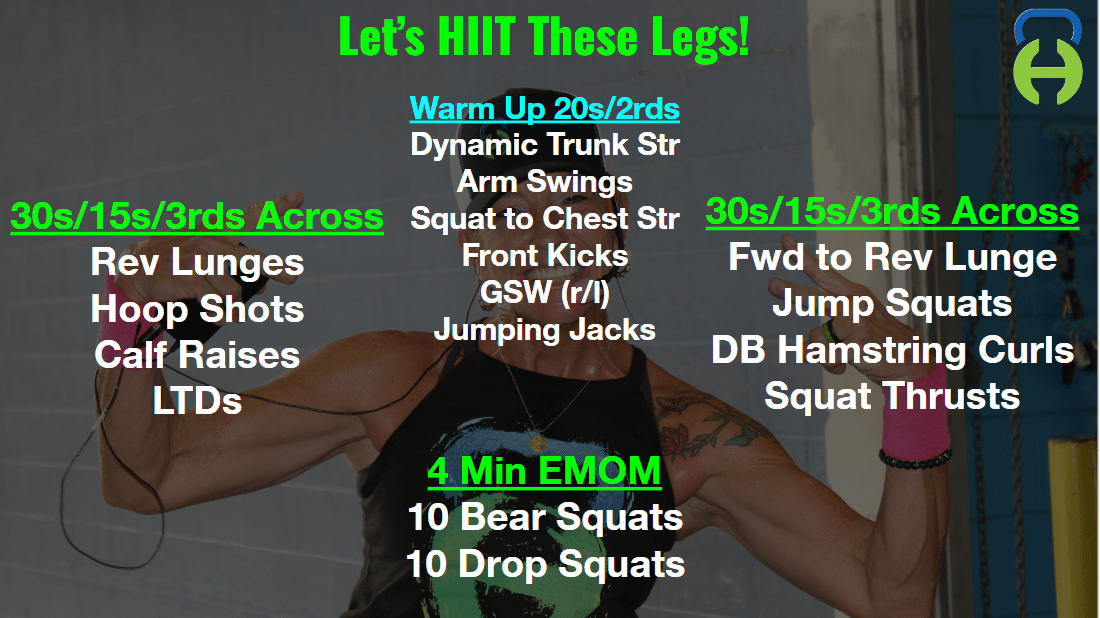
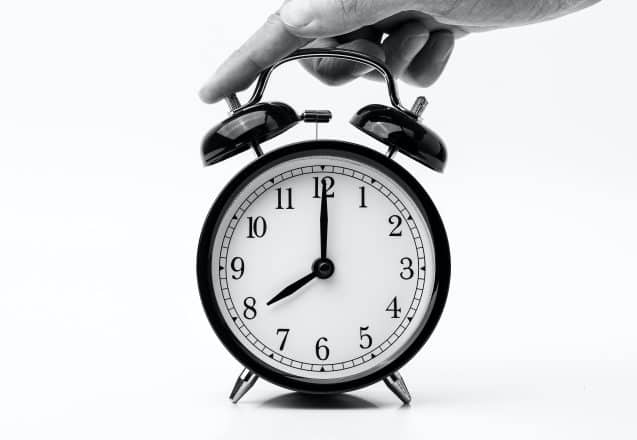
 Most people have heard the saying that you shouldn't eat after 8 p.m. Few know the reason behind that. It has little to do with the actual time of day or the average person's bedtime. If you don't get off work until 10 p.m. or go to bed early, eating after eight becomes your mealtime. If you eat three meals a day before 8 p.m., any food after that is snacking that adds extra calories.
Most people have heard the saying that you shouldn't eat after 8 p.m. Few know the reason behind that. It has little to do with the actual time of day or the average person's bedtime. If you don't get off work until 10 p.m. or go to bed early, eating after eight becomes your mealtime. If you eat three meals a day before 8 p.m., any food after that is snacking that adds extra calories.